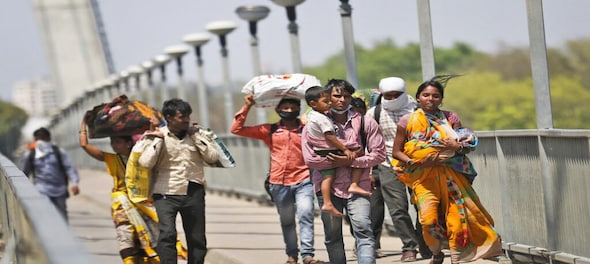
In times of turmoil, when universal human suffering reaches our doorstep, we begin to blame “others” for our misery. Today, the world at large blames China’s unhealthy food habits for serving as a breeding ground for the coronavirus pandemic. In individual countries where the COVID-19 has claimed large numbers and brought healthcare systems to their knees, citizens are blaming governments for their lack of foresight. Then again, governments are blaming citizens for not following public orders to avoid gatherings and self-isolate. And it goes on. That’s natural; its human tendency to find somebody to blame when we find ourselves incapacitated by the situation, helpless and desperate.
Then again, it’s in times like these that we need to morally introspect on why we got here. I’ve been doing a fair amount of reading and quite agree that this pandemic is a way of the Earth saying she has had enough of years of exploitation and excesses and needs restoring. Then again, I see this through another moral lens. You see, the pandemic is a counterstrike to our collective human consciousness that has been corrupted by indifference and culpability in sufferings across the world.
We looked through the papers and sighed as we saw young children in Yemen reduced to bones by hunger and famine. We indulged in ineffectual dinner table conversations on the inexplicable human tragedy in Syria, where children froze to death in brutal winter conditions. We lamented on the persecution of Rohingya Muslims, shaken by images of capsized boats and floating bodies. Yet we, as a collective human race, did nothing. We allowed governments and regimes to unleash so much human suffering on people who were not “among us” because it didn’t affect our lives — our careers, our children, our travel plans, our lifestyles. And that’s why we are here today, because we allowed our moral compass to fail us.
Our collective humanity did not rise to the occasion and that’s why we need an awakening. A Whatsapp forward rightly said – next time you see people fighting for the last roll of toilet paper, do know what it feels like to be a refugee. We are all refugees today, even those in modern nations that claim superiority over the rest of the world. Friends in the UK say supermarkets aisles are empty and online shopping orders have a wait list of more than a month. That’s how a refugee feels when he is denied access to basic essentials. We are all scrambling to seek refuge from a pathogen that we cannot see. That’s what it feels like to run for shelter from military targets that can strike from any quarter. We are denied visas to come home and see our families. That’s how it feels to be separated in war from children and mothers and fathers. We can no longer participate in social gatherings. That is what it feels like to lose community and culture. We now know what is like to live in a perpetual state of fear and paranoia.
The next few months will prove to be the real litmus test of where societies really stand, on a moral plane, as economies plunge, jobs are lost and civil unrest takes its toll. Now we’ll know the real price of allowing governments to meddle in the affairs of other countries, expanding military/ defence budgets to issue state-sponsored war to plunder their resources, for not doing enough to stop genocide of minorities and the human cost involved when our own economies are battered.
The consequences of the times to come can be brutal but are inevitable. Now we must spend our time in self-isolation seeking forgiveness for the collective human fallacy that we are part of. Of turning away. Of not caring enough. Of not doing enough.
Check out our in-depth Market Coverage, Business News & get real-time Stock Market Updates on CNBC-TV18. Also, Watch our channels CNBC-TV18, CNBC Awaaz and CNBC Bajar Live on-the-go!


BJP is planning to ban RSS, says Shiv Sena (UBT) chief Uddhav Thackeray
May 18, 2024 8:01 PM
Punjab Lok Sabha elections: Complete list of Congress candidates
May 18, 2024 4:08 PM
Punjab Lok Sabha elections: Check full list of AAP candidates and constituencies
May 18, 2024 12:59 PM
PM Modi, Rahul Gandhi election rallies in Delhi today: Here are the routes to avoid
May 18, 2024 11:28 AM

